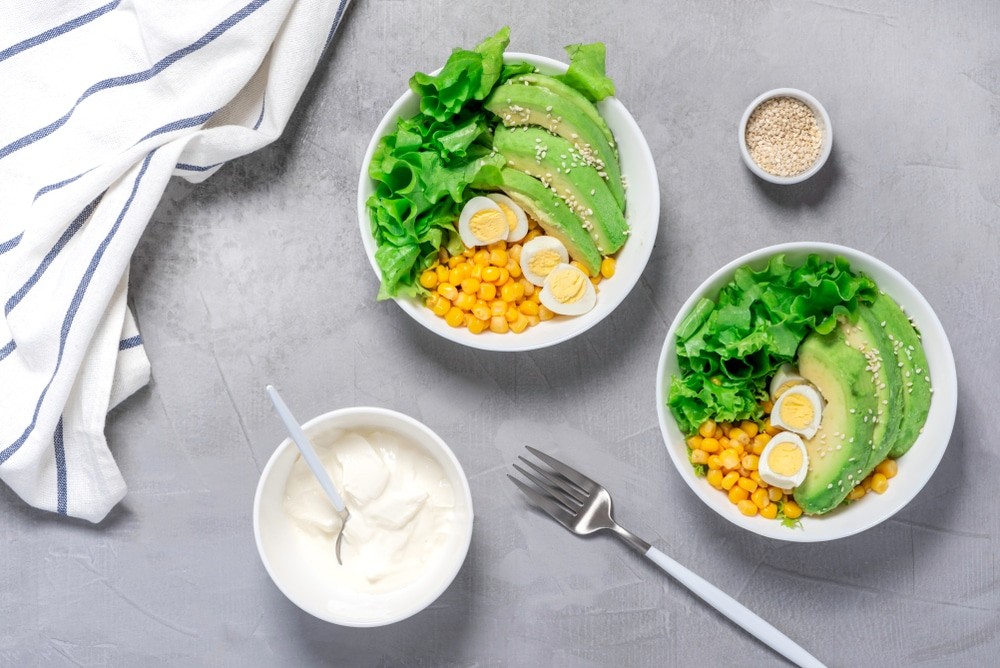
Contents
- 1 Ovo-Vegetarian Diet: A Complete Guide and Meal Plan
- 1.0.1 What is an ovo-vegetarian diet?
- 1.0.2 What are other types of vegetarian diets?
- 1.0.3 Which foods are allowed and avoided in the ovo-vegetarian diet?
- 1.0.4 7 potential benefits of the ovo-vegetarian diet
- 1.0.5 Possible drawbacks of the ovo-vegetarian diet
- 1.0.6 Sample meal plan on an ovo-vegetarian diet
Ovo-Vegetarian Diet: A Complete Guide and Meal Plan
Vegetarian diets are increasingly popular for health and environmental reasons.
However, there are many types of vegetarian diets, including the ovo-vegetarian diet.
Here is a complete guide to the ovo-vegetarian diet and a sample meal plan.
What is an ovo-vegetarian diet?
The ovo-vegetarian is a flexible type of vegetarianism that allows for the consumption of eggs but excludes all other animal products, including dairy and honey. The prefix "ovo-" comes from the Latin word for egg.
The diet is primarily for people who are lactose-intolerant or allergic to dairy products.
What are other types of vegetarian diets?
A true vegetarian excludes all animal products, while variations of vegetarianism include:
- Vegan: People who do not eat meat, poultry, fish, eggs, dairy, honey, or gelatin
- Semi-vegetarians: People who do not eat red meat but may eat poultry or fish
- Lacto-vegetarians: People who avoid meat, poultry, fish, or eggs but do eat dairy products
- Ovo-vegetarians: People who do not eat meat, poultry, fish, dairy products, but do eat eggs
- Lacto-ovo vegetarians: People who eat no meat, poultry, or fish but do eat eggs and dairy products
- Raw foodists: People who are vegans and consume mainly raw fruits, vegetables, legumes, sprouts, and nuts
- Fruitarians: People who follow a diet that includes fruits, nuts, seeds, and other plant foods
- Flexitarians: People who follow a mostly vegetarian diet but occasionally eat meat and fish
People follow vegetarianism and veganism for various reasons, including health, environmental, financial, ethical, and religious reasons.
The basic principles of a vegetarian diet include eating plenty of fruits, vegetables, whole grains, legumes, nuts, and seeds.
Research suggests that vegetarians and vegans are less likely to be overweight, have high blood pressure, get heart disease, or develop type II diabetes.
Which foods are allowed and avoided in the ovo-vegetarian diet?
Foods that are allowed
- Fruits: Apples, oranges, pears, berries, bananas, pineapple, mango, grapes, and avocado
- Vegetables: Leafy greens, carrots, potatoes, asparagus, turnips, broccoli, cauliflower, cucumbers, radishes, bell peppers, cabbage, tomatoes, and squash
- Grains: Rice, corn, quinoa, amaranth, buckwheat, bulgur, barley, oatmeal, pasta, crackers, popcorn, cereals, and bread
- Legumes: Soybeans, tempeh, tofu, miso, lentils, black beans, pinto beans, kidney beans, and peas
- Nuts and seeds: Walnuts, macadamia nuts, pecans, pistachios, almonds, cashews, Brazil nuts, hemp seeds, chia seeds, sunflower seeds, flaxseeds, and nut butter
- Eggs and egg products: Whole eggs and egg whites
- Dairy substitutes: Soy milk, almond milk, oat milk, hemp milk, cashew milk, dairy-free yogurt, and dairy-free cheese
- Oils: Olive, avocado, walnut, flaxseed, and coconut
- Beverages: Coffee, tea, water, mineral water, and non-dairy milk
- Herbs and spices: Fresh or dried herbs and spices
Foods that must be avoided
- Red meat: Beef, lamb, and pork
- Poultry: Chicken, turkey, and duck
- Fish: All fish and shellfish
- Dairy: Milk, yogurt, cheese, and butter
- Baked goods: Bread and pastries made with milk or butter
- Meat and dairy-derived food additives: Gelatin, lard, carmine, casein, and whey
- Other items: Animal-based broths, fish sauce, certain omega-3 supplements, and non-dairy creamers
In addition, try to limit the intake of ultra-processed foods because they are high in unhealthy ingredients, such as added sugar and sodium.
7 potential benefits of the ovo-vegetarian diet
1. Promotes digestive health
Vegetarian diets are high in fiber, which is essential for digestive health. Fiber promotes the growth of healthy gut bacteria that improve digestive function and prevent constipation, hemorrhoids, and diverticular disease.
2. Improves overall diet quality
Studies suggest that vegetarian diets encourage the consumption of nutrient-dense foods like fruits, vegetables, legumes, and whole grains, while reducing saturated fat intake.
3. Aids weight management
A vegetarian diet, lower in calories and fat than animal-derived foods, is linked to lower body weight and reduced risk of obesity.
4. Lowers disease risk
Studies have shown that a vegetarian diet may help protect against heart disease, type II diabetes, and certain types of cancer due to the high fiber, antioxidants, and phytochemicals in plant-based foods.
5. Helps regulate blood sugar levels
People who follow a vegetarian diet tend to have a higher intake of whole grains, fruits, and vegetables, which prevent blood sugar spikes by improving insulin sensitivity.
6. Promotes heart health
Several studies suggest that vegetarians have a reduced risk of heart disease. A vegetarian diet, combined with regular exercise, lowers blood pressure and cholesterol levels and reduces plaque buildup in blood vessels.
7. More affordable
Plant-based diets are generally more affordable than meat-based diets because plant-based foods are typically less expensive. Many plant-based foods are also more sustainably obtained.
Possible drawbacks of the ovo-vegetarian diet
Inadequate protein intake
Protein is essential for maintaining healthy bones, muscles, organs, skin, and hair. Ensure adequate protein intake on an ovo-vegetarian diet by including high-protein plant foods like beans, lentils, tofu, tempeh, nuts, and seeds.
Nutrient deficiencies
An ovo-vegetarian diet may result in deficiencies of iron, calcium, zinc, omega-3 fatty acids, and vitamins D and B12. To ensure sufficient nutrient intake, add whole grains, nuts, seeds, legumes, and fortified foods to your diet.
Unhealthy vegetarian junk foods
Some vegetarian and vegan junk foods, like French fries, chips, cookies, and candy, are calorie-dense and harmful to health. Choose snacks made with whole, unprocessed ingredients instead.
Sample meal plan on an ovo-vegetarian diet
| Scrambled eggs with vegetables, whole wheat toast, and fruit | Lentil vegetable stew with flaxseed crackers | Quinoa and bean chili with avocado slices |
| Omelet with vegetables and vegan cheese, whole-grain muffin, and grapefruit | Egg salad sandwich on whole wheat bread, carrot sticks, and an apple | Spaghetti with marinara sauce and a side salad |
| Banana smoothie with almond milk, oats, and chia seeds | Stir-fried tofu with rice and vegetables | Veggie burger on a whole wheat bun with lettuce, tomato, and onion |
| Oatmeal with fresh berries and chopped nuts | Grilled vegan cheese sandwich on whole wheat bread with roasted tomatoes | Vegan eggplant Parmesan with whole wheat pasta and a side salad |
| Scrambled eggs with salsa, whole wheat tortilla, and orange juice | Soup and salad combo with hard-boiled eggs | Pizza with vegetables and vegan cheese |
| Banana pancakes with maple syrup and vegan butter | Vegetable wrap with hummus and a side of fruit | Lentil curry with rice and naan bread |
| Tofu scramble with vegetables, whole wheat toast, and coffee with almond milk | Grilled vegetable salad with hard-boiled eggs and balsamic dressing | Spaghetti squash with marinara sauce and a side of steamed broccoli |


